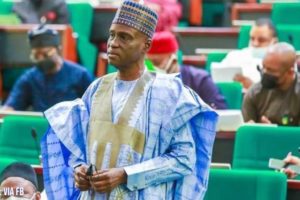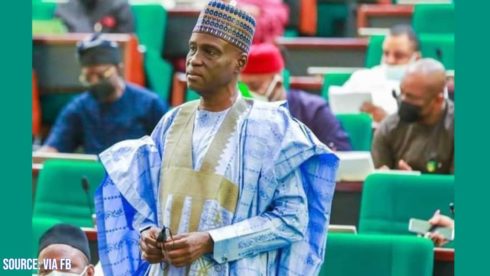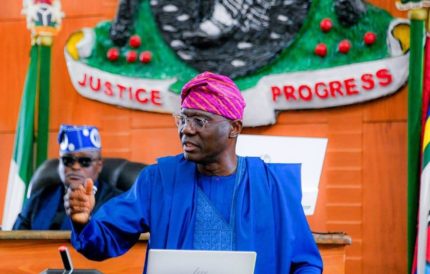The Federal Government of Nigeria has issued a directive to halt the export of Liquefied Petroleum Gas (LPG) produced in the country. The decision will take effect on November 1, 2024, and is aimed at ensuring a sufficient supply of cooking gas for local consumers. Minister of State for Petroleum Resources (Gas), Ekperikpe Ekpo, made this announcement on Tuesday, signaling a significant shift in policy that prioritizes local consumption over international sales.
This directive comes in response to growing concerns over the affordability and availability of LPG in Nigeria. With the prices of gas soaring in recent months, Federal Government is keen to address the economic strain faced by households across the country. The move also represents a strategic effort to better manage the nation’s gas resources, ensuring that Nigerians benefit from their own natural endowments.
Stakeholders’ Meeting Sets the Stage for Pricing Reforms
The decision to halt LPG exports follows a high-level meeting convened in Abuja, where Minister Ekpo engaged with key industry stakeholders to address the crisis. This meeting underscored the urgent need for immediate action to curb the rising prices of gas, which have affected millions of households nationwide. Ekpo and his team sought to identify practical solutions that would ease the financial burden on citizens while ensuring the sustainability of gas supply.
During the discussions, the stakeholders acknowledged the importance of keeping locally produced gas within the domestic market. They emphasized that exporting a commodity critical for everyday use, while Nigerians struggle with access, is counterproductive. This pivotal meeting has paved the way for broader reforms, which will likely reshape Nigeria’s gas industry in the months to come.
Nigerian Producers to Cease LPG Exports
As part of the new directive, Nigeria’s leading gas producers, including the Nigerian National Petroleum Company Limited (NNPCL), are required to stop exporting LPG produced within the country. Minister Ekpo made it clear that any equivalent volumes exported will have to be re-imported at cost-reflective prices. This means that any gas exported will not be reintroduced into the domestic market without bearing the true cost of exportation, discouraging the practice and keeping more gas within Nigeria’s borders.
This decision marks a significant shift in Nigeria’s energy policy, emphasizing Federal Government’s commitment to ensuring that local resources benefit local consumers. By restricting exports, Federal Government hopes to increase domestic gas availability and stabilize prices, making it more affordable for Nigerian households.
Pricing Framework to Be Overhauled
A key component of this new directive is the establishment of a new pricing framework for domestic LPG. The Nigerian Midstream and Downstream Petroleum Regulatory Authority (NMDPRA) has been tasked with engaging stakeholders to develop this framework within 90 days. The new pricing model will focus on linking the cost of LPG to in-country production costs, rather than relying on international market indices, which currently dictate much higher prices.
This shift will significantly reduce the cost of gas for consumers by ensuring that the price they pay is reflective of local production conditions. The current practice of indexing Nigerian gas prices to foreign markets, such as those in the Americas and Far East Asia, has been a major contributor to the inflated prices faced by Nigerian consumers.
Addressing the Cost-of-Living Crisis
Federal Government’s new gas policy is part of a broader strategy to address the ongoing cost-of-living crisis in Nigeria. In recent months, the price of basic commodities, including cooking gas, has soared, leaving many families struggling to afford essential items. By prioritizing local gas supply and reforming the pricing structure, Federal Government hopes to provide immediate relief to households while strengthening Nigeria’s energy security.
In addition to this, Federal Government is expected to explore further measures aimed at reducing the overall cost of energy, including investments in renewable energy sources and enhancing the efficiency of the domestic gas supply chain. These efforts are crucial for easing the financial pressures on Nigerian citizens and fostering long-term economic stability.
Implications for the Nigerian Economy
The halt on gas exports is expected to have wide-reaching implications for both the domestic and international markets. While it is anticipated to stabilize gas prices locally, there may be short-term disruptions in export revenues. However, Federal Government is optimistic that the benefits of prioritizing domestic consumption will outweigh any potential losses in foreign exchange earnings.
Furthermore, this policy shift could encourage more investments in Nigeria’s gas infrastructure, as producers will need to focus on expanding their domestic operations to meet growing demand. This could lead to job creation and stimulate economic growth, making Nigeria a more self-sufficient energy producer in the long run.
Table of Contents
Discover more from OGM News NG
Subscribe to get the latest posts sent to your email.













